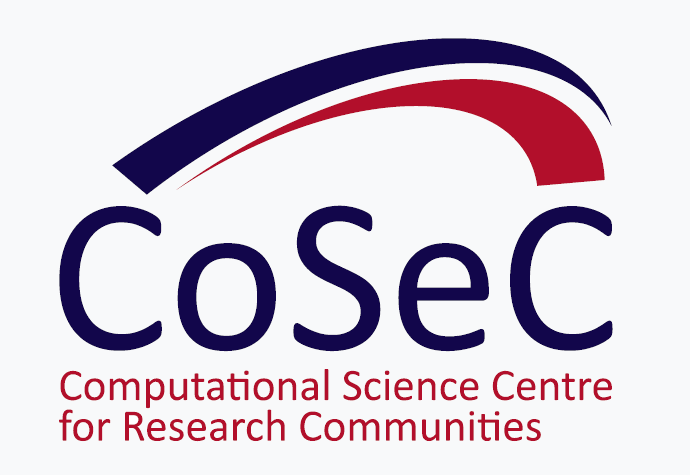Past Events
To Wednesday 22 April 2015
Workshop Material
The workshop material can be found here
Organisers
Prof. Francesco Gervasio and Dr. Edina Rosta
Special invited lecturers
Prof. Frank Noe, Dr. Antonia Mey (Free University Berlin)
Dr. Nicolae-Viorel Buchete (University College Dublin)
Dr. Guillermo Pérez-Hernández (Free University Berlin)
Venue
Strand Campus, King’s College London, Strand, London WC2R 2LS. Room K4UI.13.
Registration
This course is now full. However, you can still register interest on the Event Booking page. We will use this list in case of cancellations. In addition, we are looking into running the workshop again in the near future if there is sufficient interest.
Registration is free, but students will need to pay for their own travel and accommodation.
Accommodation
Students will need to organise their own accommodation. Short stay accommodation for King's College can be booked at http://www.kcl.ac.uk/campuslife/residences/Short-Stay-Accommodation/Shor...
Sponsors
The workshop is co-sponsored by the EPSRC Centre for Doctoral Training in Cross-Disciplinary Approaches to Non-Equilibrium Systems (CANES) programme.
Overview
Free energies and kinetic properties are essential for the quantitative characterization of the physical properties of various systems modelled using molecular simulations. Often times, however, the time-scales of the important biomolecular processes are much longer than the simulation lengths that can be currently afforded with the high-performance supercomputing resources. Novel computational approaches are thus needed to bridge this gap using improved algorithms.
This workshop will provide a hands-on introduction to two of the most successful enhanced-sampling methods that are widely used to compute the free energy landscape and the kinetics associated with complex biomolecular events. In days 1 and 2, we will introduce the theory and practicalities of Markov models, showing how they can be used to calculate free energies and kinetics from biased and unbiased molecular dynamics trajectories. In day 3, we will introduce the theory of Metadynamics-based enhanced sampling approaches, followed by step-by-step tutorials for setting up and analyzing metadynamics simulations with the open-source plug-in PLUMED.
The workshop is aimed at advanced PhD students or post-docs who already have a working knowledge of molecular dynamics simulations of bio-molecular systems. During the 3 day training, the participants will become familiar with the free open-source program packages and learn to effectively use them in their own research. The workshop is open to advanced PhD students, postdoctoral fellows, and principal investigators, including participants from industry. Participants will be encouraged to share their experience with rare events in biomolecular systems and to try and apply the acquired knowledge on their own systems.
Programme
Day 1. Introduction to Markov modeling analysis of molecular trajectories
(Frank Noe, Edina Rosta, Vio Buchete)
- Introduction to Markov models of biomolecular dynamics
- Simple practical introduction to reaction kinetics
- Free energies and dynamics from discretized reaction coordinate-based Markov models
Day 2. Markov models from molecular trajectories
(Antonia Mey, Frank Noe)
- Installation of the EMMA software (https://www.github.com/markovmodel/pyemma)
- Transformation and Clustering of biomolecular trajectory data
- Estimation and Analysis of MSMs
- Interpretation of the results
Day 3. Metadynamics
(Francesco Gervasio, Giorgio Saladino)
- Introduction to Metadynamics and its main derivatives and variants.
- Introduction to Collective Variables (CVs) and their optimal choice.
- Combined approaches (parallel-tempering Metadynamics and Well Tempered Ensemble).
- Examples of PLUMED input used in recent papers (e.g. Sutto & Gervasio PNAS 2013).
- Setting up PLUMED calculations.
- Obtaining free energies from metadynamics simulations.
- Optimal and sub-optimal CVs.
- Convergence issues.
- Reweighting (obtaining the free energy as a function of different sets of CVs).






